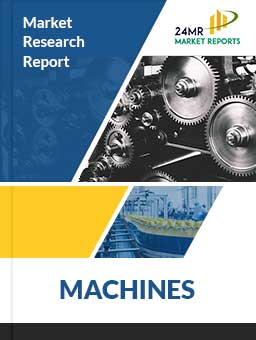
Download FREE Report Sample
Download Free sampleMARKET INSIGHTS
Global Four-Post Lift market size was valued at USD 130 million in 2024 and is projected to reach USD 164 million by 2032, growing at a CAGR of 3.5% during the forecast period. The automotive sector remains the primary driver for this market, with Asia dominating production volumes at 56% of global output according to OICA statistics.
Four-post lifts are heavy-duty vehicle maintenance systems designed for stability during repair and storage operations. These hydraulic or electromechanical platforms feature four vertical columns supporting a horizontal carriage, enabling safe elevation of vehicles up to 25,000 lbs capacity. Market segmentation includes light-duty models (3,000-9,000 lbs) for passenger vehicles and heavy-duty variants (10,000+ lbs) for commercial fleets.
While the market shows steady growth, regional adoption patterns vary significantly. North America and Europe collectively account for over 40% of installations due to mature automotive aftermarkets, whereas Asia's growth is fueled by expanding vehicle parc - China alone contributes 32% of global automobile production. Recent developments include smart lift integrations with IoT diagnostics, though adoption remains constrained by high initial costs in emerging economies.
Expanding Automotive Repair Industry Driving Four-Post Lift Adoption
The global automotive repair and maintenance sector continues to expand, creating substantial demand for four-post lifts. With over 81 million vehicles produced worldwide in 2022, service centers require robust lifting solutions to handle the growing repair volumes. Four-post lifts offer superior stability and weight capacity compared to two-post alternatives, making them ideal for long-term vehicle storage and comprehensive servicing. Modern lifts now feature advanced safety systems including automatic locking mechanisms and overload protection, further boosting their appeal to professional workshops.
Rising Demand for Heavy-Duty Vehicle Maintenance Solutions
To know more about market statistics, Download a FREE Sample copy
Commercial vehicle fleets are expanding globally to meet logistics demands, driving need for specialized service equipment. Heavy-duty four-post lifts capable of handling vehicles weighing up to 20 tons are seeing increased adoption in truck maintenance facilities. The North American class 8 truck fleet alone exceeds 5 million units, creating sustained demand for durable lifting solutions. Fleet operators increasingly prefer four-post designs for their ability to safely accommodate oversized vehicles during extended maintenance procedures.
Moreover, evolving safety regulations for vehicle servicing are prompting workshops to upgrade their equipment. Many regions now mandate certified lifting systems that meet stringent operational standards, further fueling market growth.
➤ The European Union's updated workplace safety directives now require periodic inspection and certification of all vehicle lifting equipment, creating replacement demand for modern four-post systems.
Furthermore, the integration of smart technologies into four-post lifts, including IoT-enabled condition monitoring and automated positioning systems, is expanding their functionality and market appeal.
High Initial Investment Costs Limiting Market Penetration
While four-post lifts offer superior capabilities, their premium pricing presents a significant adoption barrier for smaller repair shops. Professional-grade systems can cost 2-3 times more than basic two-post models, putting them out of reach for budget-conscious businesses. Installation often requires reinforced concrete foundations and additional space allocation, further increasing total project costs. This pricing challenge is particularly acute in developing markets where capital expenditure budgets remain constrained.
Other Restraints
Space Requirements
The substantial footprint of four-post lifts makes them impractical for many urban service centers where real estate comes at a premium. Even compact models typically require at least 25% more floor space than alternative lifting solutions, forcing shops to prioritize between lift capacity and operational capacity.
Installation Complexities
Proper installation demands specialized technical expertise that may not be locally available in all regions. The need for precise leveling and power connections adds logistical challenges, particularly in remote service locations where infrastructure standards vary.
Intensifying Competition from Alternative Lifting Technologies
The four-post lift market faces growing competition from innovative mobility solutions, particularly in passenger vehicle servicing. Mobile column lifts and scissors lifts now offer comparable weight capacities with significantly smaller footprints, appealing to space-constrained operators. The emergence of modular lifting systems that combine multiple platform types further challenges traditional four-post dominance in certain applications.
Additionally, the aftermarket service sector's shift toward multi-bay, high-throughput operations favors faster-cycling lift solutions where four-post models sometimes underperform single-post alternatives in terms of operational speed.
Growing Premium and Classic Car Segment Creating Niche Demand
The expanding global luxury and vintage vehicle markets present significant opportunities for specialized four-post lift manufacturers. High-end automotive collectors increasingly require premium lifting solutions for long-term vehicle storage and meticulous restoration work. Features like aluminum construction, customizable padding, and gentle lifting mechanisms command premium pricing in this segment. Some manufacturers now offer bespoke four-post systems tailored specifically to exotic car dealerships and private collections.
Furthermore, the rise of vehicle subscription services and premium rental fleets is generating demand for commercial-grade storage solutions where four-post lifts excel. This emerging segment values equipment that can safely maintain vehicle condition during extended periods of non-use.
Heavy Duty Models Segment Leads Due to Rising Demand in Commercial Automotive Services
The market is segmented based on type into:
Light Duty Models
Heavy Duty Models
Automobile Repair Shop Segment Dominates Owing to Widespread Service Infrastructure
The market is segmented based on application into:
Automobile Repair Shop
4S Shop
Others
Automotive Service Equipment Leaders Compete Through Innovation and Geographic Expansion
The global four-post lift market features a mix of established manufacturers and emerging players, with competition intensifying as automotive service demands grow worldwide. Vehicle Service Group (VSG), a division of Dover Corporation, currently leads the market with an estimated 18% revenue share in 2024. The company's dominance stems from its comprehensive product range serving both light-duty and heavy-duty applications, coupled with strong distribution networks across North America and Europe.
BendPak and MAHA collectively account for approximately 25% of global sales, leveraging their specialized engineering capabilities and reputation for durability. MAHA's focus on premium-grade lifts for European markets and BendPak's cost-competitive models for North American workshops demonstrate the strategic differentiation within the competitive landscape.
While these top players maintain stable market positions, mid-tier competitors like Nussbaum (Stertil Group) and Challenger Lifts are gaining traction through technological advancements. Recent introductions of smart lift systems with IoT capabilities and enhanced safety features illustrate how innovation drives competition beyond traditional price wars.
Asian manufacturers such as ZONYI and Sugiyasu are reshaping competition dynamics through aggressive pricing strategies. However, their current focus on domestic markets limits global influence - a trend likely to change as China's aftermarket service sector matures.
The global four-post lift market continues to experience steady growth, projected to reach $164 million by 2032 with a 3.5% CAGR, primarily fueled by the automotive sector. While vehicle production peaked at 97.3 million units in 2017, current volumes around 81.6 million units still create substantial demand for vehicle servicing equipment. Asia dominates this landscape, accounting for 56% of global automobile production, with China alone representing 32% of total output. This geographic concentration directly correlates with lift installation rates, as dealerships, repair shops, and 4S facilities increasingly adopt four-post systems for their stability and versatility in vehicle maintenance operations.
Technological Advancements in Lift Systems
Manufacturers are integrating smart features like IoT-enabled load monitoring and automated locking mechanisms to enhance safety and operational efficiency. Recent innovations include wireless control systems with diagnostic capabilities, allowing technicians to monitor lift performance in real-time. These developments coincide with the automotive industry's shift toward servicing heavier electric vehicles, prompting demand for lifts with increased load capacities exceeding 15,000 lbs in some configurations.
The proliferation of authorized service centers and independent repair shops continues to stimulate market growth. Automotive brands now require 90%+ lift coverage in their dealer networks to maintain service level agreements, creating consistent demand across both emerging and mature markets. Furthermore, the average age of vehicles in operation has risen to 12.1 years in key markets, driving increased maintenance frequency and subsequent lift replacement cycles. Industry surveys indicate 68% of repair shops prioritize four-post configurations for alignment work and major repairs due to their superior workspace accessibility compared to two-post alternatives.
North America
The North American four-post lift market is driven by a robust automotive aftermarket and high vehicle ownership rates, with the U.S. accounting for over 85% of regional demand. Stringent workplace safety regulations (OSHA compliance) and the prevalence of professional repair facilities have accelerated adoption. The region is characterized by steady technological advancements, with manufacturers integrating features like wireless controls and ALI/ETL certifications. While market maturity limits explosive growth, replacement cycles (typically 7-10 years) and the increasing weight of electric vehicles are creating demand for heavy-duty models. Canada shows particular demand growth in urban centers, benefiting from expanding auto service networks.
Europe
Europe's market is shaped by dense automotive service networks and strict EU machinery directives (EN 1493 standards). Germany and France collectively account for nearly 40% of regional sales, benefiting from premium vehicle servicing requirements. The trend toward electric vehicle adoption (with 2.3 million EVs sold in 2022) is driving demand for lifts with higher weight capacities and specialized features. Sustainability concerns have led to eco-conscious designs using recycled materials, particularly in Nordic countries. Eastern Europe presents growth opportunities, though price sensitivity favors mid-range Asian imports. The commercial vehicle segment shows particular promise, with increasing investment in truck servicing infrastructure.
Asia-Pacific
Accounting for over 45% of global demand, Asia-Pacific dominates the four-post lift market, led by China's massive automotive service sector. The region blends high-volume production of cost-effective models with emerging demand for advanced features. India's market is expanding at 8% annually, fueled by growing vehicle parc and organized workshop chains. Japan and South Korea exhibit steady demand for precision lift systems aligned with their advanced automotive ecosystems. While light-duty models prevail for passenger vehicles, Southeast Asia shows increasing heavy-duty adoption to service growing logistics fleets. Local manufacturing clusters in China (60% of regional production) keep prices competitive, though international brands gain traction in premium segments.
South America
The South American market remains price-driven, with Brazil and Argentina comprising 70% of regional demand. Economic volatility has slowed investments, though the thriving used car market sustains demand for repair equipment. Infrastructure limitations in rural areas concentrate sales in major cities. Import dependency remains high (80% of lifts), placing local distributors in critical positions. The commercial vehicle segment shows stronger growth than passenger car lifts, reflecting regional transportation needs. While regulatory standards exist, enforcement varies significantly between countries, creating a fragmented quality landscape. Government initiatives to formalize the automotive service sector present long-term growth potential.
Middle East & Africa
This emerging market is characterized by extreme contrasts - ultra-modern facilities in Gulf states versus underserved markets in Africa. The UAE and Saudi Arabia drive premium demand, with luxury car services requiring advanced lift systems. African growth is constrained by infrastructure limitations, though South Africa and Nigeria show promise with expanding vehicle service networks. The commercial/off-road vehicle segment outperforms passenger lifts due to regional transportation realities. While imports dominate, local assembly is emerging in Morocco and Egypt. The lack of standardized regulations creates quality variances, though increasing insurance requirements for repair shops are raising equipment standards gradually.
This market research report offers a holistic overview of global and regional markets for the forecast period 2025–2032. It presents accurate and actionable insights based on a blend of primary and secondary research.
✅ Market Overview
Global and regional market size (historical & forecast)
Growth trends and value/volume projections
✅ Segmentation Analysis
By product type or category
By application or usage area
By end-user industry
By distribution channel (if applicable)
✅ Regional Insights
North America, Europe, Asia-Pacific, Latin America, Middle East & Africa
Country-level data for key markets
✅ Competitive Landscape
Company profiles and market share analysis
Key strategies: M&A, partnerships, expansions
Product portfolio and pricing strategies
✅ Technology & Innovation
Emerging technologies and R&D trends
Automation, digitalization, sustainability initiatives
Impact of AI, IoT, or other disruptors (where applicable)
✅ Market Dynamics
Key drivers supporting market growth
Restraints and potential risk factors
Supply chain trends and challenges
✅ Opportunities & Recommendations
High-growth segments
Investment hotspots
Strategic suggestions for stakeholders
✅ Stakeholder Insights
Target audience includes manufacturers, suppliers, distributors, investors, regulators, and policymakers
-> Key players include Vehicle Service Group, Nussbaum (Stertil Group), BendPak, MAHA, and Cascos Lifts, among others.
-> Key growth drivers include increasing automotive production (81.6 million vehicles in 2022), expansion of automotive repair networks, and demand for heavy-duty lifting solutions.
-> Asia-Pacific leads the market (56% of global auto production), while North America shows strong adoption of advanced lifting technologies.
-> Emerging trends include electrification of lifts, smart monitoring systems, and modular design innovations to enhance safety and efficiency.

Speak to our Custom Research Team and get the Custom Research in a budget
Custom ResearchFrequently Asked Questions ?
A license granted to one user. Rules or conditions might be applied for e.g. the use of electric files (PDFs) or printings, depending on product.
A license granted to multiple users.
A license granted to a single business site/establishment.
A license granted to all employees within organisation access to the product.
Upto Working 24 to 48 hrs
Upto 72 hrs max - Weekends and Public Holidays
Online Payments with PayPal and CCavenue
Wire Transfer/Bank Transfer
Hard Copy




 Industry Market Size
Industry Market Size SWOT Analysis
SWOT Analysis Industry Major Players
Industry Major Players Revenue Forecasts
Revenue Forecasts Historical and Forecast Growth
Historical and Forecast Growth Profitability Analysis
Profitability Analysis
























